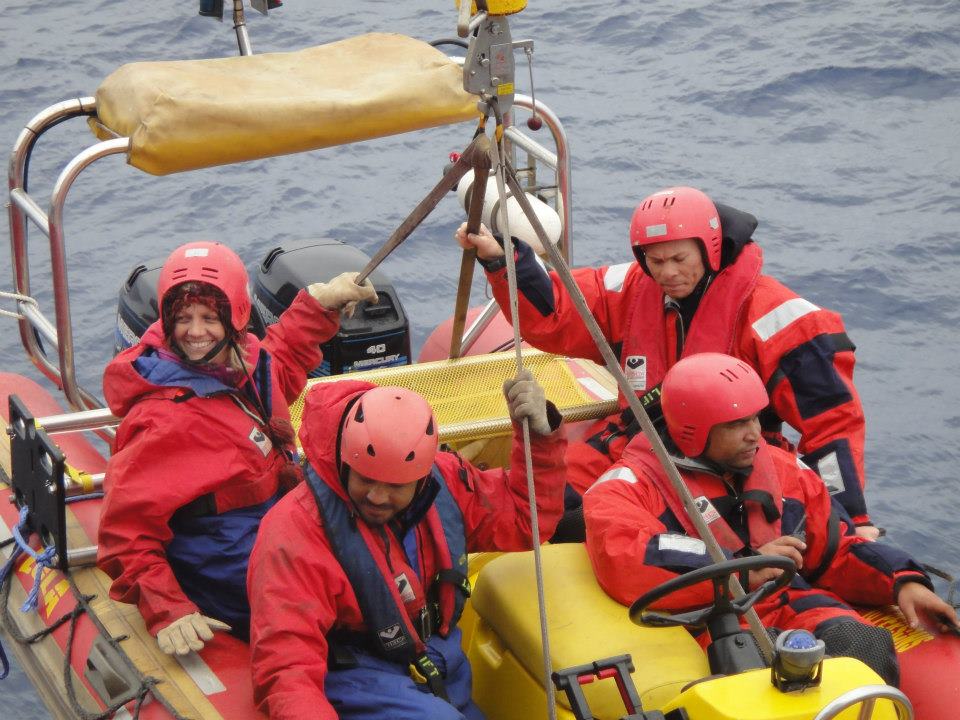The Council for Scientific and Industrial Research (CSIR) and its collaborators’ contribution to understanding the Southern Ocean features prominently in a recent publication highlighting emerging observational research programmes for the Southern Ocean and Antarctica.
With a special focus on the Southern Ocean, the United Nations’ latest CLIVAR Exchanges journal has been published marking its 83rd issue. A scientific article contribution from CSIR and Stellenbosch University researchers is featured. Titled “The Southern Ocean Carbon-Climate Observatory (SOCCO): A South African-Led Ocean- Climate Science and Innovation Programme that Links Fine Scale Dynamics to Large Scale Carbon-Climate Feedbacks”, the research team pays homage to South Africa’s flagship ocean and climate science programme established in 2010 to understand the sensitivity of the Southern Ocean to climate change.

a damaged robotics platform, testament to their commitment to
testing the influence of the Southern Ocean in global climate.
In their paper, the co-authors, CSIR’s Ocean Systems and Climate Research Group Leader Dr Sandy Thomalla, along with CSIR senior researchers Dr Nicolette Chang, Dr Precious Mongwe, Dr Sarah-Anne Nicholson, Dr Thomas J. Ryan-Keogh, and Stellenbosch University Professor Pedro Monteiro detail how the SOCCO programme has developed a scientific niche in ocean climate science.
Scientific highlights of SOCCO’s impressive journey and impact since its inception are illustrated. For example, how SOCCO has combined ships and ocean robotics to understand the links between the Southern Ocean and global climate. Insightful highlights describe how the investment in infrastructure and facilities has unlocked science leadership and innovation that are being put in place for societal impact and growth – all to align with the United Nations Decade of Ocean Science for Sustainable Development (2021–2030).
Since its inception 14 years ago, SOCCO’s success has been made possible through supportive partnerships and funding notably from the Department of Science, Technology and Innovation. The programme is recognised for its ability to address the scientific need to build the capacity and skills required to address the impacts of climate change. It remains committed to making technological and human capital development a strategic intent. Today, SOCCO has produced more than 117 publications and has generated more than 104 postgraduate science and engineering students. The takeaway message is that SOCCO’s trajectory continues to establish national integrated observational and modelling capability for fine-scale ocean dynamics that links the value chain from basic science to societal impact.
ship on a winter science voyage to the Southern Ocean.
Reversing the cycle of decline in ocean health requires the involvement of stakeholders worldwide. “We are proud that SOCCO is one of two South African contributions in this special issue of CLIVAR Exchanges,” says Thomalla. “The opportunity to be published in CLIVAR affirms that SOCCO has made an impressive impact in Southern Ocean-climate science that is being recognised internationally. Innovation in observations, modelling, machine learning and sensor development remains key to the modus operandi of SOCCO as it continues on its mission to reduce uncertainties in key physical-biogeochemical processes of the Southern Ocean towards strengthening confidence in climate projections from Earth system models,” Thomalla shares.
In this special issue, eight articles with contributions representing Argentina, Brazil, India, New Zealand and South Africa are published. The topics involve robust scientific updates on the physical oceanography and biogeochemistry of the Southern Ocean and introduce new projects, science programmes and instruments for data collection, networking, social sciences and educational efforts on an international level, all focused on the Southern Ocean surrounding Antarctica.
Publicly available since Friday, 25 October 2024, the 47-page publication is initiated by the CLIVAR Southern Ocean Region Panel and highlights emerging observational research programmes for the Southern Ocean and Antarctica. Readers are encouraged to understand the dynamics, interaction, and predictability of the climate system with an emphasis on ocean-atmosphere interactions. The publication is available at CLIVAR Exchanges 83_1024.pdf
Contact Person: Dr Sandy Thomalla , @email,